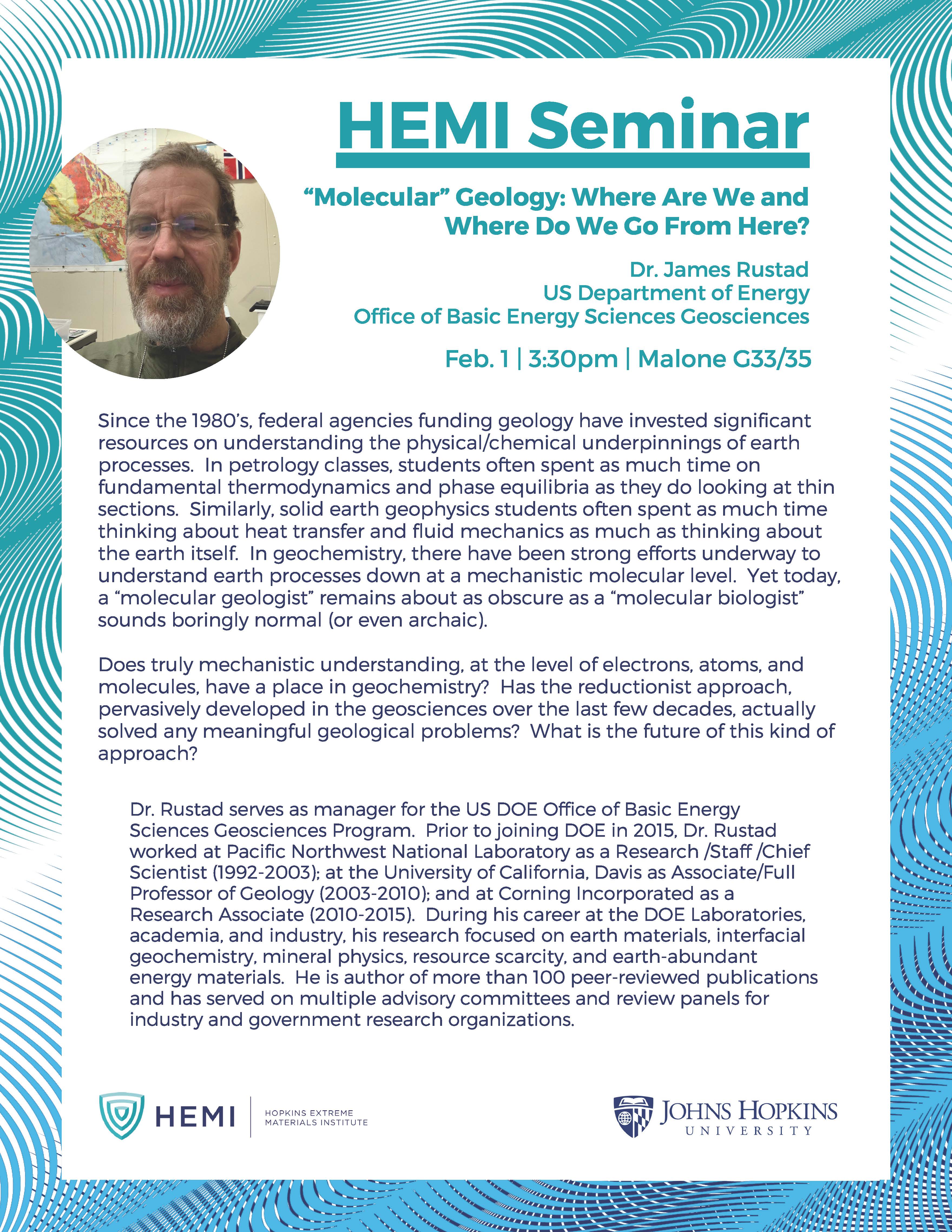February 1, 2019 @ 3:30 pm - 4:30 pm
Event Navigation

“Molecular” geology: Where are we and where do we go from here?
Since the 1980’s, federal agencies funding geology have invested significant resources on understanding physical/chemical underpinnings of earth processes. In petrology classes, students often spent as much time on fundamental thermodynamics and phase equilibria as looking at thin sections. Solid earth geophysics students often spent as much time thinking about heat transfer and fluid mechanics as much as thinking about the earth itself. In geochemistry, there have been strong efforts underway to understand earth processes down at a mechanistic molecular level. Yet today, a “molecular geologist” remains about as obscure as a “molecular biologist” sounds boringly normal (or even archaic).
Does truly mechanistic understanding, at the level of electrons, atoms, and molecules, have a place in geochemistry? Has the reductionist approach, pervasively developed in the geosciences over the last few decades, actually solved any meaningful geological problems? What is the future of this kind of approach?
Dr. Rustad serves as manager for the US DOE Office of Basic Energy Sciences Geosciences Program. Prior to joining DOE in 2015, Dr. Rustad worked at Pacific Northwest National Laboratory as a Research /Staff /Chief Scientist (1992-2003); at the University of California, Davis as Associate/Full Professor of Geology (2003-2010); and at Corning Incorporated as a Research Associate (2010-2015). During his career at the DOE Laboratories, academia, and industry, his research focused on earth materials, interfacial geochemistry, mineral physics, resource scarcity, and earth-abundant energy materials. He is author of more than 100 peer-reviewed publications and has served on multiple advisory committees and review panels for industry and government research organizations.




